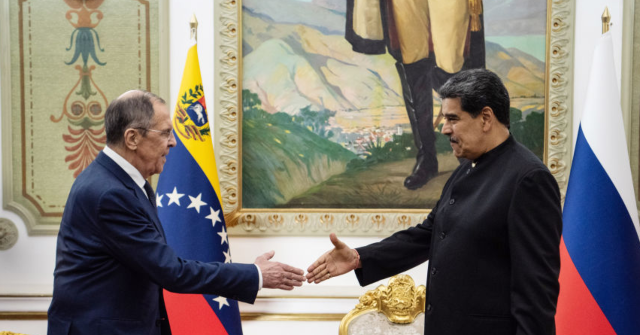Russia Debuts Cybersecurity Alliance with Venezuela, Cuba, and North Korea
In a move that has sparked concerns about the spread of authoritarian regimes' influence in cybersecurity, Russia's Foreign Ministry announced on Monday that it had signed a joint agreement with over ten countries, including Venezuela, Cuba, Nicaragua, and North Korea. The agreement, titled "International Cooperation in the Field of Information Security," brings together nations from across the globe to promote a "transparent and equitable system of international information security" based on the principles of the United Nations Charter.
The signatory nations, which include Belarus, Burkina Faso, Egypt, Iran, Iraq, Kyrgyzstan, Laos, Nicaragua, Venezuela, and North Korea, claim to be committed to preventing cybercrime and promoting digital governance. However, many observers have raised eyebrows at the inclusion of countries with questionable human rights records in this initiative.
Despite concerns about its potential implications for freedom of speech, particularly in authoritarian regimes like China, Russia, and Venezuela, the agreement has received praise from some quarters. The left-wing propaganda outlet Telesur hailed it as a "step towards regaining control" over cyberspace from private actors and powers that impose their unilateral rules.
The signatory countries expressed support for the United Nations Convention Against Cybercrime, which was adopted in December last year. This convention is set to hold its first signing ceremony in Hanoi, Vietnam, on October 25, followed by a series of events at the U.N. headquarters in New York until December 31, 2026.
The cybersecurity convention aims to address the significant risks posed by the misuse of information and communications technologies (ICT), which enable criminal activities on an unprecedented scale, speed, and scope. According to the United Nations, this convention "acknowledges the significant risks posed by the misuse of ICTs" and focuses on protecting states, enterprises, and individuals from offenses such as terrorism, human trafficking, drug smuggling, and online financial crimes.
Russia and its allies claim that their goal is to forge cooperation between competent authorities in member states to counter the use of ICTs for criminal purposes. However, critics have questioned the sincerity of this assertion, given the track record of these countries on issues like hacking and mass-surveillance.
"Our common goal is to forge cooperation between the competent authorities of States Parties at the earliest convenience in order to counter the use of ICTs for criminal purposes in a comprehensive manner," the joint statement read. "We assume that the next step should be to develop within the United Nations universal agreements on other aspects of international information security, including stability in the ICT sphere."
Despite these lofty ambitions, many observers remain skeptical about the true intentions behind this initiative. As Christian K. Caruzo, a Venezuelan writer and documents life under socialism, noted in an interview with Telesur: "The global governance of cyberspace cannot be in the hands of private actors or powers that impose their unilateral rules."
This agreement marks a significant development in the realm of international cybersecurity cooperation. As the world grapples with the increasing threats posed by cybercrime, it remains to be seen whether this initiative will live up to its promises or serve as a Trojan horse for authoritarian regimes' influence.
